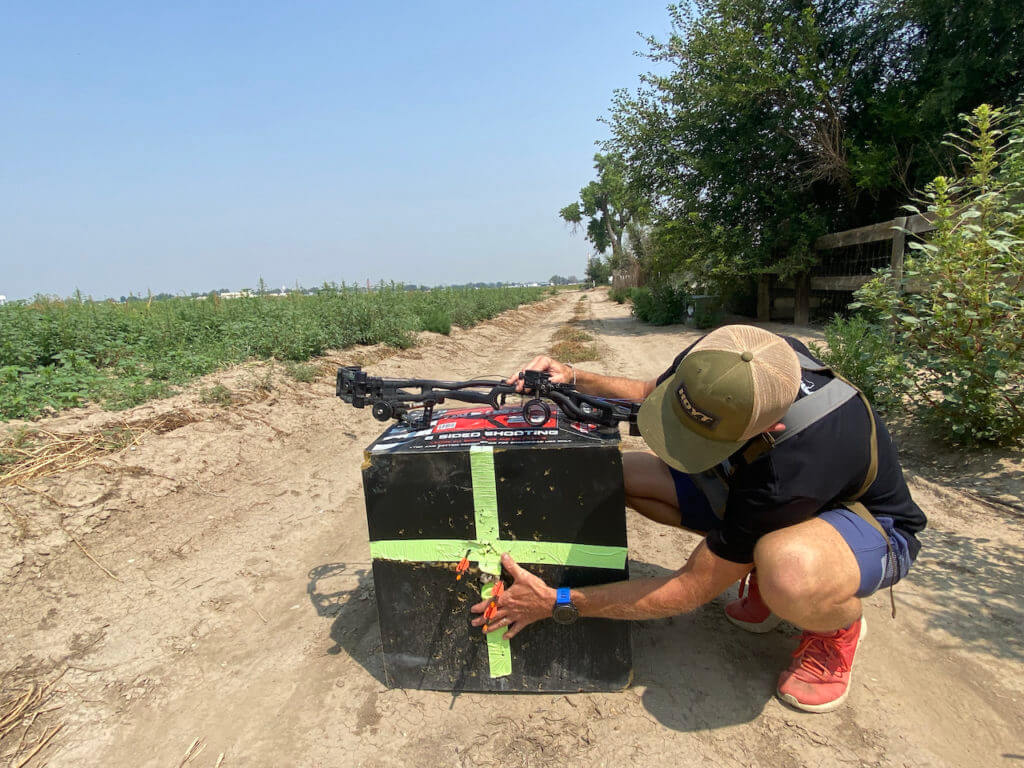
Gun lovers go nuts over bullets. That’s a fact. Most accuracy-obsessed shooters load their own and test and tinker with various bullet types. Why? They seek ballistic perfection — to find the exact cartridge build their rifle’s bore will love.
Bows don’t have bores. As long as your arrow’s spine is paired with the draw-weight of your compound shooter, you can experience great shooting and incredible accuracy. However, like bullets, not all arrows are created equally.
Enter Easton’s new-for-2021 4MM Axis Long Range. In recent years, archers have been breaking distance boundaries — sending carbon at long ranges — stacking shafts with jaw-dropping accuracy. Yes, much of this is partly due to the archer’s shooting ability, but like a bullet, some arrows perform better at long range than others.
Don’t tar and feather me. I’m not promoting long-range shooting when bowhunting. However, if you’re making plans to come West — this year or in the future — you need to be able to put carbon through lungs from 60 yards. Not to mention that long-range practice will make you much more proficient when shooting at close distances.
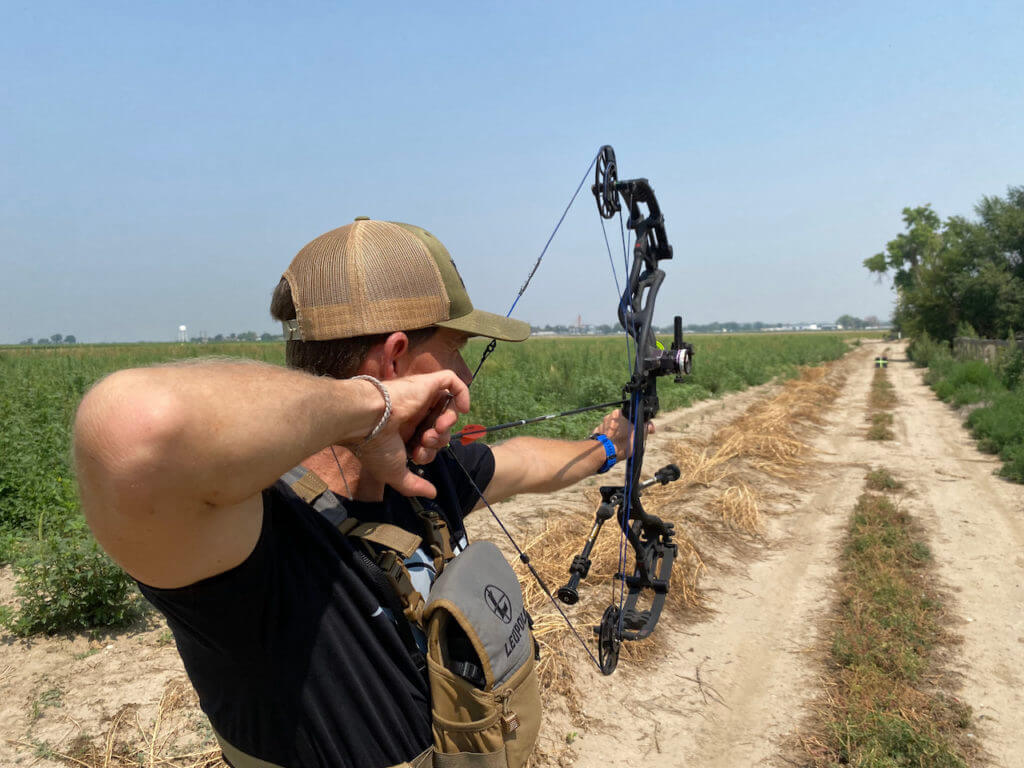
I’ve been testing Easton’s 4MM Long Range Axis for months. My first shafts were prototypes. Why all the hype surrounding them? First, these 4MM shafts are ultra-micro-diameter. They slice through the wind like butter, and the wind is a constant factor out West. Another bonus of the shaft’s micro-diameter build is boosted penetration. Less surface area means reduced friction. Plus, the arrow can track seamlessly behind the broadhead. The arrow can drive deeper into the game when the shaft stays in the wound channel and doesn’t have increased contact with flesh and organs.
Adding to the penetration puzzle is the Half-out insert. Unlike Easton’s previous 4MM incarnations that used the manufacturer’s HIT (Hidden Insert Technology), an aluminum insert pushed up and into the shaft via an insert tool, these Axis shooters sport a Half-out (50-grain) insert. Not only are these inserts a breeze to glue in, but they add weight to the arrow’s front, which ups F.O.C. (Front of Center). Right arrow FOC is the percentage of weight that resides in the arrow’s front half. For most bowhunters, this is typically between 10 and 15 percent. Plus, the inserts sports standard 8-32 threads. This means you won’t have to purchase Deep Six field points and broadheads when using these Half-out inserts. Easton (sold separately) provides shooters the option of Titanium Half-out (55-grains), and standard Steel HIT (20-grain) inserts as well.
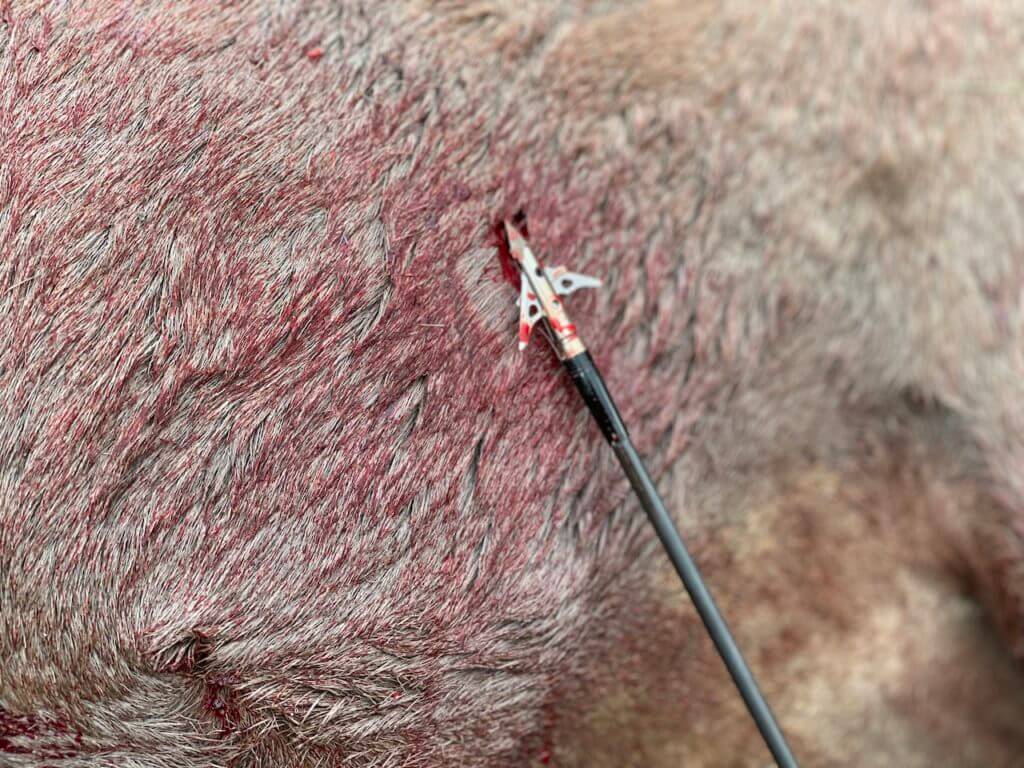
For testing, I opted to fit my 4MMs with the Aluminum Half-out inserts. I want to note that those who plan to buy unfletched 4MM shafts will need to cut those shafts an inch shorter to accommodate the inserts. Total arrow weight included 4MM MicroLite Nocks (6 grains), 100-grain SEVR Titanium 1.5 broadhead, and four AAE Hybrid 23 vanes were 405.5 grains. Don’t worry; we will get to the accuracy side of things in a moment. What blew me away from the get-go was the shaft’s ability to penetrate. I shot the 4MM Axis Long Range head-to-head against Easton’s 5MM Axis — a tried-and-true favorite of mine — and from a distance of 50 yards, the 4MM with the Half-out penetrated more than 5 inches deeper in a fresh Block target face.
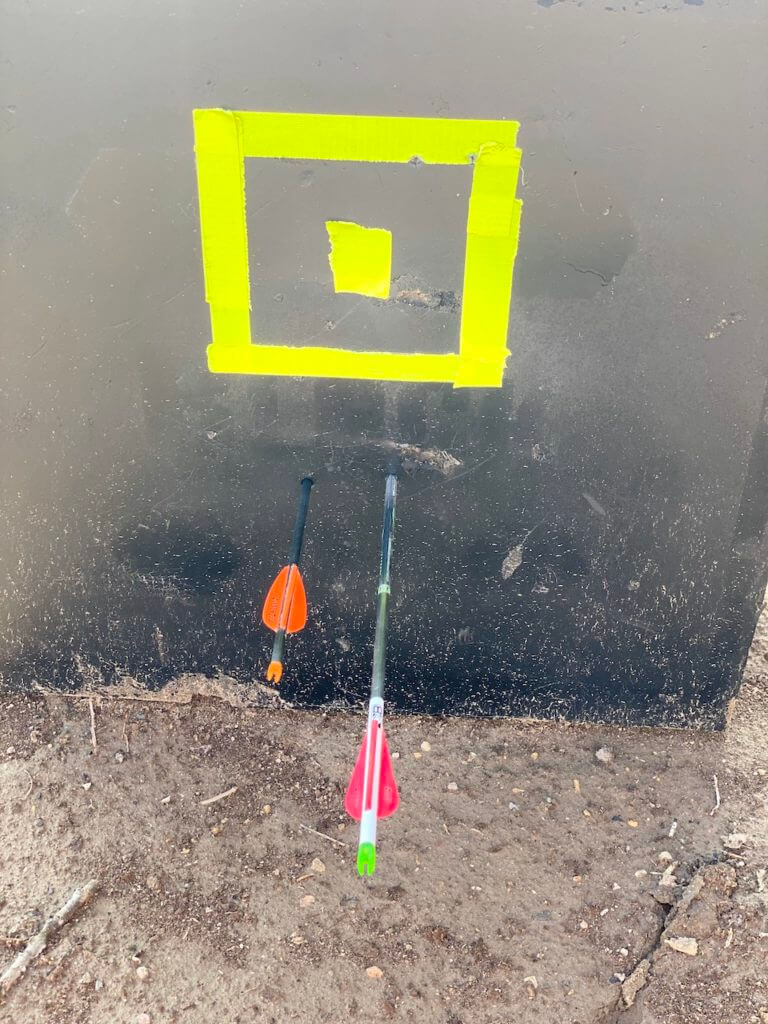
During penetration, other features popped up, and I loved them all. Because the shaft cut the wind so well and was married perfectly with my Hoyt’s 68.4-pound draw weight, it flew ultra-quiet. Setting up a high-definition video camera told the tale — shot against five other popular arrows, this shaft was the quietest.
Speed was another important notice. The shafts 100 percent carbon layup build boosts velocity, and when fired from my 68.4-pound Hoyt Ventum 33, produced an average speed of 302 feet per second. If you do the math, this equals a kinetic energy rating of 82-foot pounds.
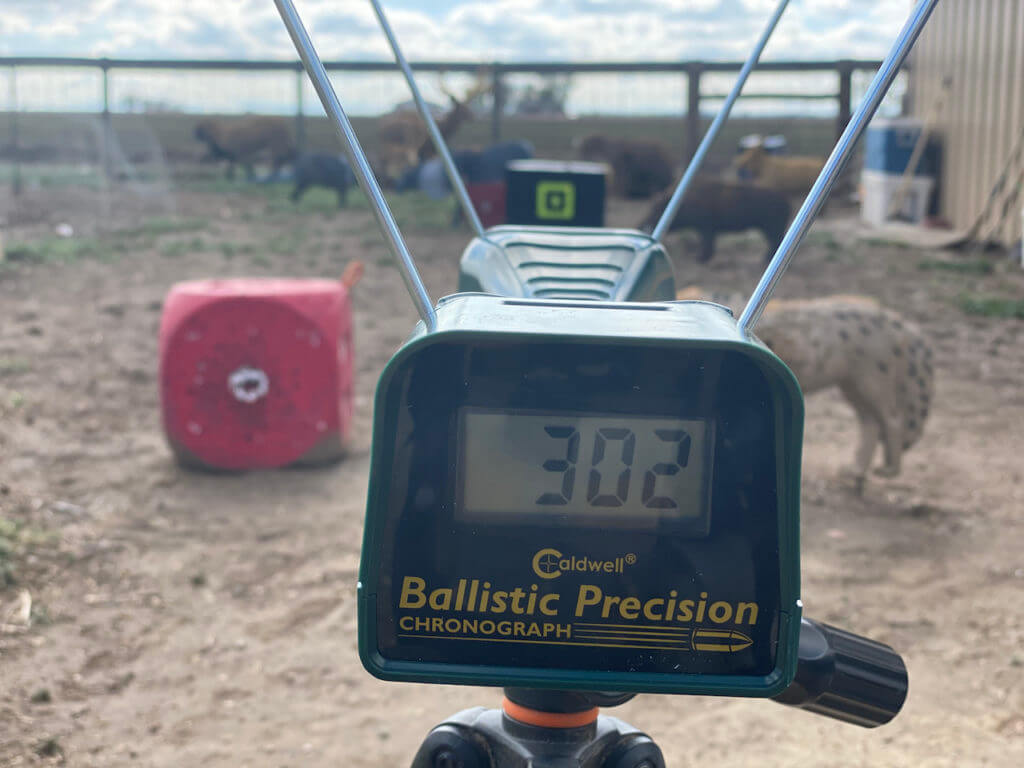
As for the arrow’s accuracy, it delivered it in spades. Bare and fletched shafts were touching at 20 yards, and once I started to stretch things out, the long-range capability of this arrow was undeniable. From distances between 20 and 60 yards, there was little difference between the 4MM Axis Long Range, 5MM Axis, and 5MM FMJ. However, when shooting at distances between 60 and 120 yards, the 4MM Axis Long Range consistently produced better groups.
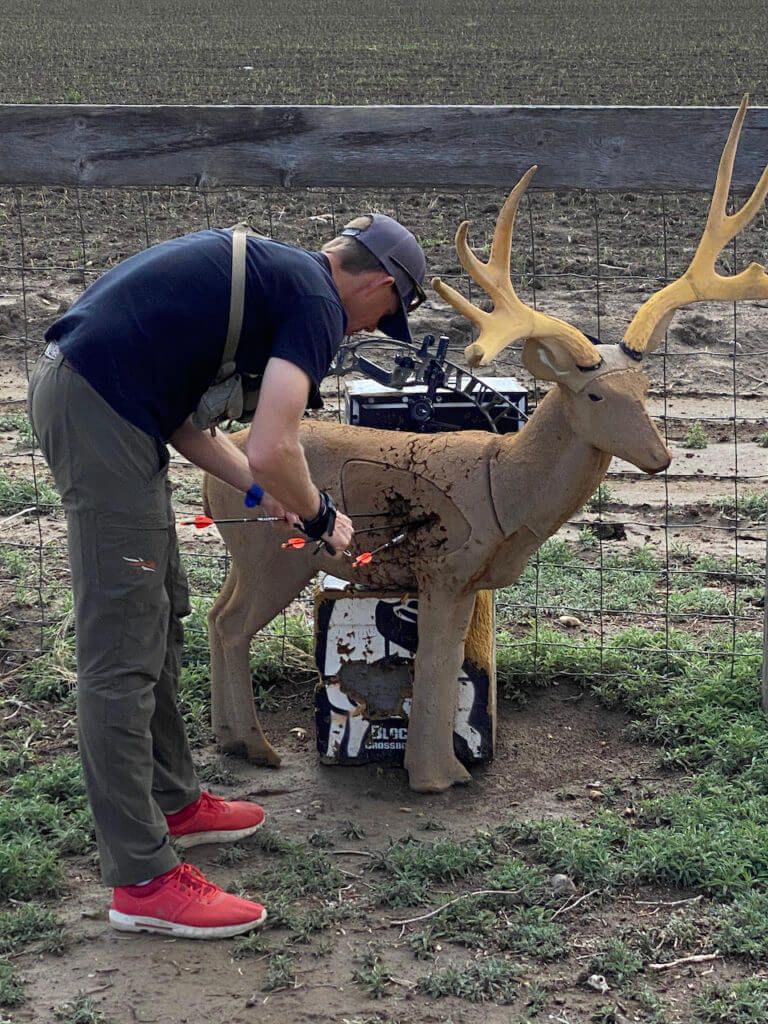
After 19 consecutive years of applying, I was blessed to draw a Colorado Rocky Mountain Bighorn Sheep tag. There was no question in my mind what arrow I would be using on this hunt. I figured the shot would be between 50 and 65 yards, and I knew the wind would be blowing. On the afternoon of the hunt’s third day, I put a single Easton 4MM Axis Long Range through the lungs of a 64.5-yard ram. When an arrow proves itself in practice and then again in a hunting situation, it’s an arrow that will be in my quiver for a very long time.
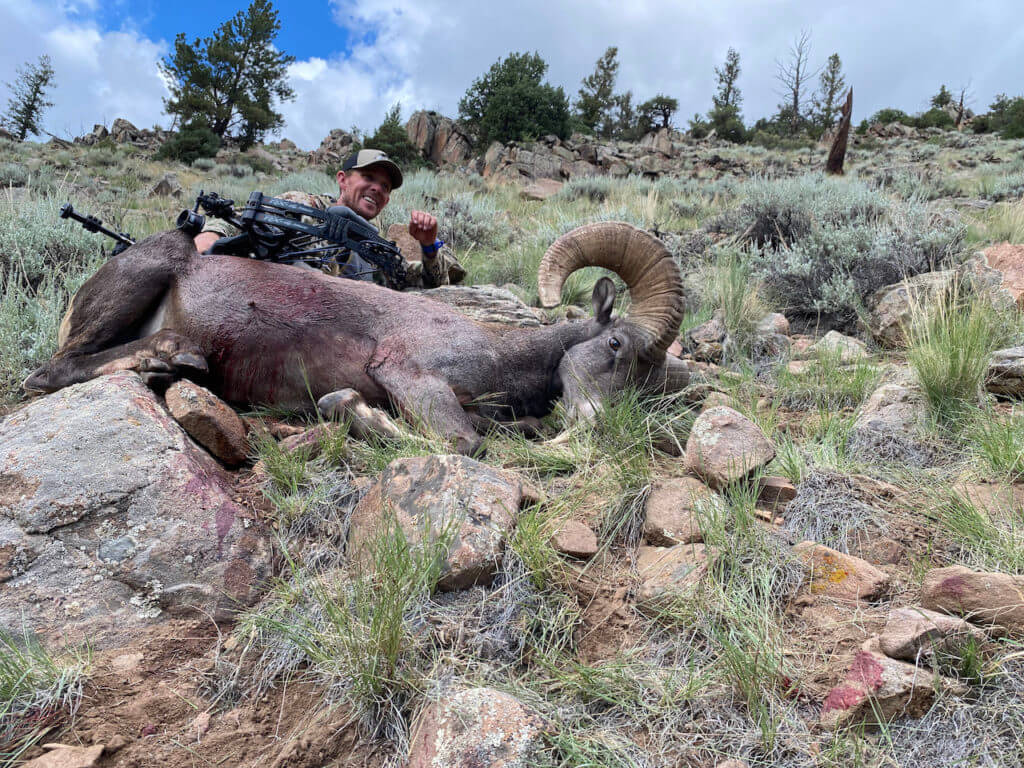
One argument from naysayers will be the arrow’s price. A fletched six-pack will run close to $100 with tax. I will be the first to admit that these arrows aren’t for everyone, and Easton didn’t build them for everyone. Easton strives to give every archer, bowhunter, and the list goes on, the exact type of arrow they need to fill them with confidence. If you like to push your sight’s yardage tape to the max and want to put more arrows on the mark this fall when shooting at an extended distance, you can’t beat the 4MM Axis Long Range.
Specs:
Easton offers 4MM Axis Long Range arrows in spine sizes of 400 (7.4 gpi), 340 (8.3 gpi), 300 (9.3 gpi) and 250 (9.8 gpi). GPI = Grains Per Inch.
For more information go to Easton Archery.



Read your book on pronghorn hunting. It got me into archery. My 14 year-old son was already and having way to much fun without me. Glad to see your articles here. We’ve been pushing 100 yards to develop confidence and form. Great review on these arrows may have to try some. Shooting gold tip hunter xt and Easton bloodlines now.